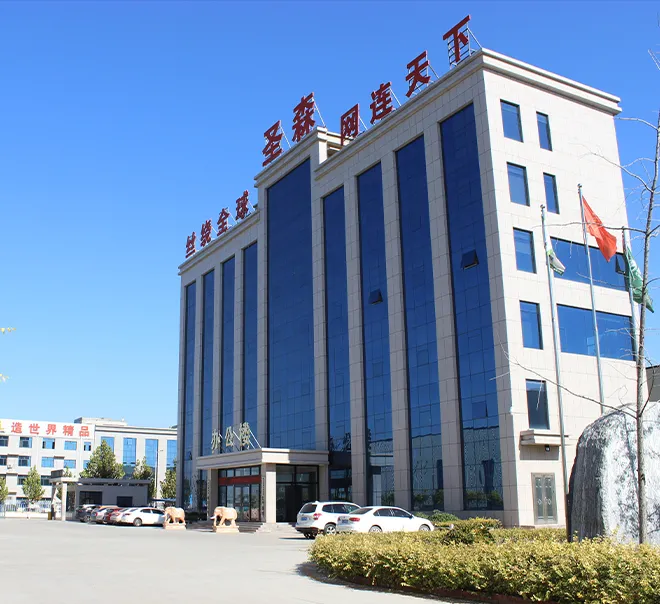-
 Phone:
Phone: -
 Email:
Email:

baling wire manufacturers
Exploring the World of Baling Wire Manufacturers
Baling wire is an essential component in various industries, specifically in waste management and recycling. It plays a crucial role in the compacting and binding of materials into bales for easier handling and transportation. As the demand for recycled materials grows and industries seek efficient packaging solutions, the role of baling wire manufacturers becomes ever more critical. This article delves into the unique aspects of baling wire manufacturing, its applications, and the key players in the industry.
Understanding Baling Wire
Baling wire is primarily used to secure bales of different materials, including scrap metal, cardboard, paper, and plastic. Available in various types, such as galvanized, black annealed, or stainless steel, the choice of wire depends on the specific application requirements. Baling wire must be strong, durable, and resistant to corrosion, ensuring it can withstand the rigors of handling and transportation without breaking or degrading.
The Manufacturing Process
The manufacturing of baling wire involves several steps. Initially, raw materials such as steel wire rods are sourced from suppliers. These rods undergo processes such as drawing, where they are pulled through a series of dies to reduce their diameter while increasing their length. This is followed by annealing, a heat treatment process that enhances the ductility and strength of the wire.
Once the wire has reached the desired diameter and properties, it is either galvanized or finished with other coatings to increase its resistance to rust and corrosion. Post-manufacturing, the wire is often coiled into bundles or spools for distribution to various industries. Quality control is a critical step during manufacturing, ensuring that the wire meets or exceeds industry standards for strength and durability.
Applications of Baling Wire
Baling wire finds its primary application in the recycling and waste management sectors. Recycling centers use baling wire to compress and secure materials for transport to processing facilities. In addition, industries involved in producing products from recycled materials, such as cardboard manufacturers and metal recyclers, also rely heavily on baling wire. It is important for ensuring that materials remain compact and intact throughout the supply chain.
baling wire manufacturers

Beyond recycling, baling wire also has applications in agriculture. Farmers often use baling wire to secure bales of hay or straw, which are essential for livestock feed and bedding. In the construction industry, baling wire can be used to bundle materials or even in temporary binders for securing construction supplies.
Key Players in the Industry
The baling wire manufacturing industry is home to several noteworthy companies. These manufacturers often differentiate themselves through product quality, customer service, and innovative solutions tailored to the needs of their clients.
Leading manufacturers like Cascade Steel Rolling Mills, Southern Wire, and Cleveland Wire Cloth have established themselves as industry leaders. They provide a wide range of baling wire products, each tailored to specific needs, whether for recycling, agriculture, or construction. Many of these manufacturers also emphasize sustainability in their operations, utilizing recycled materials in their production processes to minimize environmental impact.
Innovations and Trends
As industries evolve, so do the demands for performance and quality in baling wire. Manufacturers are increasingly investing in research and development to produce wires that are stronger, lighter, and more resistant to corrosion. Additionally, with greater emphasis on sustainability, more manufacturers are exploring ways to incorporate recycled materials in their wire production.
The rise of automation in manufacturing processes is another trend that is transforming the industry. Automated systems can enhance production efficiency, reduce labor costs, and ensure consistent quality in wire production. This technological advancement allows manufacturers to meet increasing demand while maintaining competitive pricing.
Conclusion
Baling wire is an indispensable component in recycling and industrial processes, driven by its ability to facilitate efficiency and sustainability. With continued growth in recycling efforts and a heightened focus on sustainable practices, baling wire manufacturers are positioned to play an important role in the circular economy. As new innovations and technologies emerge, the future of baling wire manufacturing looks bright, promising to enhance the industry’s contribution to eco-friendly practices and efficient material handling. Whether in recycling, agriculture, or construction, the significance of baling wire cannot be underestimated, making it a critical area of focus for both manufacturers and end-users alike.
-
Wire Mesh for Every Need: A Practical SolutionNewsJul.25,2025
-
Steel Fences: Durable, Secure, and Stylish OptionsNewsJul.25,2025
-
Roll Top Fencing: A Smart Solution for Safety and SecurityNewsJul.25,2025
-
Cattle Farm Fencing Solutions for Maximum SecurityNewsJul.25,2025
-
Affordable Iron Binding Wire SolutionsNewsJul.25,2025
-
Affordable Galvanized Wire SolutionsNewsJul.25,2025
-
Wire Hanger Recycling IdeasNewsJul.25,2025








